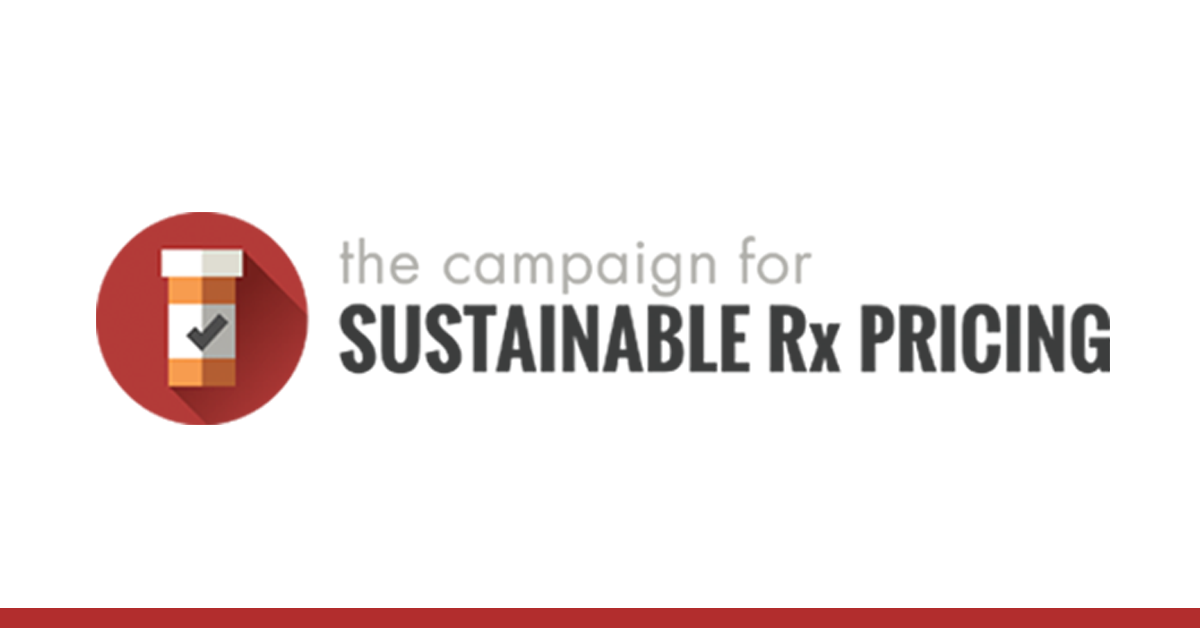© 2025 CSRXP- All Rights Reserved

ICYMI: CSRxP Calls On FDA To Break Down Barriers To Affordable Drugs
Oct 2, 2018
Through the advancement of modern medicine, biologic drugs are providing new hope that patients will be able to treat – and in many cases overcome – diseases that traditional medications could not. Unfortunately, until the U.S. Food and Drug Administration (FDA) finalizes guidance that would encourage more affordable biologic options, these life-saving drugs will be too expensive for many families to afford.
As Campaign for Sustainable Rx Pricing (CSRxP) Executive Director wrote in a Morning Consult op-ed:
“Current policies allow large drug manufacturers to monopolize the marketplace — keeping more affordable versions of these drugs off the shelf and price gouging patients who desperately need the medications… By passing the Biologics Price Competition and Innovation Act of 2009, Congress did its part to address this problem and pave a pathway for bringing affordable biosimilars and interchangeables to the market. The FDA now has the opportunity to help foster the emergence of interchangeables on the market by finalizing its guidance on the issue.”
FULL OP-ED HERE:
Breaking The Barrier Between Affordable Drugs And Patients Who Need Them Most
Lauren Aronson
September 24, 2018
Morning Consult
Twenty years ago, many forms of lymphoma cancer were effectively a death sentence. Traditional treatments such as radiation proved to be insufficient in battling the disease, and many patients could only buy time.
But now, thanks to the promise of a biologic drug called Rituxan, many diagnosed with this cancer have the confidence of knowing there is finally a promising treatment. In fact, 10-year survival rates for patients using the drug are now topping more than 75 percent.
This is just one example of how biologic drugs are bringing hope to patients with diseases ranging from cancer to diabetes and Crohn’s disease. Unlike the orange bottles you may think of when you hear the term “prescription drug,” most biologics aren’t pills at all. They are usually administered in a doctor’s office or a hospital through an IV, and they are made through an entirely different process than most medications.
Traditional drugs are made through a relatively straightforward process. Drug manufacturers take a mixture of chemicals and combine them in an ordered process to create the medicine. Manufacturing biologic drugs is far more complicated. They use biotechnology or other cutting-edge technologies to manipulate different molecules such as sugars, proteins or even living cells or tissues into medicines that can fight off a variety of diseases — many of which have no other remedy.
This complex process makes biologic drugs expensive to manufacture. Current policies allow large drug manufacturers to monopolize the marketplace — keeping more affordable versions of these drugs off the shelf and price gouging patients who desperately need the medications. Six of the 10 top-selling drugs on the market are now biologic drugs. While a minority of patients use biologic drugs, they have become a huge driver of skyrocketing drug prices and now account for more than 40 percent of prescription drug spending.
In the traditional drug market, generics have been remarkably effective at driving down costs — saving consumers $1.67 trillion over the last decade by offering more affordable versions of brand drugs.
In the biologic drug department, there are two pathways for affordable alternatives to name-brand drugs: biosimilars and interchangeables.
Biosimilars refer to biologics that are legally required to have “highly similar” makeup as the name-brand drug and have no clinically meaningful differences. Currently, there are 12 biosimilars approved by the Food and Drug Administration, but consumers can only access four of them because the other eight are tied up in patent litigation as name-brand drugmakers attempt to retain monopoly control of the marketplace.
Interchangeables refer to biologic drugs that have been shown to be biosimilar to the reference product but also are expected to produce the same clinical result as the name-brand medication. The FDA has yet to finalize its guidance on interchangeability.
By passing the Biologics Price Competition and Innovation Act of 2009, Congress did its part to address this problem and pave a pathway for bringing affordable biosimilars and interchangeables to the market. The legislation was passed to give the FDA the clear authority to approve biosimilars and interchangeables and to bring much-needed competition to these markets.
The FDA now has the opportunity to help foster the emergence of interchangeables on the market by finalizing its guidance on the issue. We were pleased to see the agency host a public hearing on biosimilars recently, bringing different industry groups together to talk about this important issue. It’s our hope that immediate action will follow.
That’s the message the Campaign for Sustainable Rx Pricing and leaders across pharmaceutical, insurance, hospital and patient groups delivered in a letter to FDA Commissioner Scott Gottlieb, calling on the agency to finalize interchangeability guidance and help to bring more affordable medications to the people who need them the most.
Every day, patients who rely on biologic drugs are being price gouged by pharmaceutical companies that put profits ahead of lives. After nearly one decade, it’s time that the FDA takes this important step on behalf of patients across the country and finalizes this guidance. The decision simply cannot wait any longer.
###
